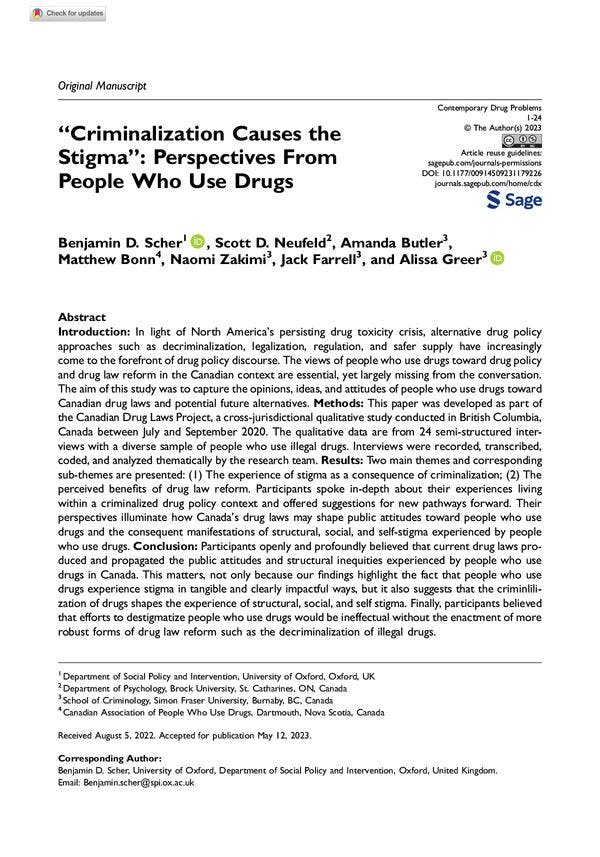"La criminalización provoca el estigma": Perspectivas de las personas que usan drogas
Scher et al. destacan, basándose en entrevistas con personas que usan drogas, cómo la criminalización de las drogas da forma a experiencias de estigma estructural, social y propio. Más información, en inglés, está disponible abajo.
Abstract
Introduction
In light of North America's persisting drug toxicity crisis, alternative drug policy approaches such as decriminalization, legalization, regulation, and safer supply have increasingly come to the forefront of drug policy discourse. The views of people who use drugs toward drug policy and drug law reform in the Canadian context are essential, yet largely missing from the conversation. The aim of this study was to capture the opinions, ideas, and attitudes of people who use drugs toward Canadian drug laws and potential future alternatives.
Methods
This paper was developed as part of the Canadian Drug Laws Project, a cross-jurisdictional qualitative study conducted in British Columbia, Canada between July and September 2020. The qualitative data are from 24 semi-structured interviews with a diverse sample of people who use illegal drugs. Interviews were recorded, transcribed, coded, and analyzed thematically by the research team.
Results
Two main themes and corresponding sub-themes are presented: (1) The experience of stigma as a consequence of criminalization; (2) The perceived benefits of drug law reform. Participants spoke in-depth about their experiences living within a criminalized drug policy context and offered suggestions for new pathways forward. Their perspectives illuminate how Canada's drug laws may shape public attitudes toward people who use drugs and the consequent manifestations of structural, social, and self-stigma experienced by people who use drugs.
Conclusion
Participants openly and profoundly believed that current drug laws produced and propagated the public attitudes and structural inequities experienced by people who use drugs in Canada. This matters, not only because our findings highlight the fact that people who use drugs experience stigma in tangible and clearly impactful ways, but it also suggests that the criminlilization of drugs shapes the experience of structural, social, and self stigma. Finally, participants believed that efforts to destigmatize people who use drugs would be ineffectual without the enactment of more robust forms of drug law reform such as the decriminalization of illegal drugs.
Descargas
Temas
Regiones
Perfiles relacionados
- Contemporary Drug Problems
